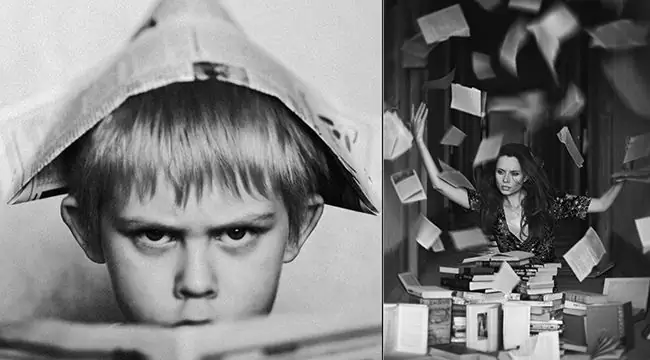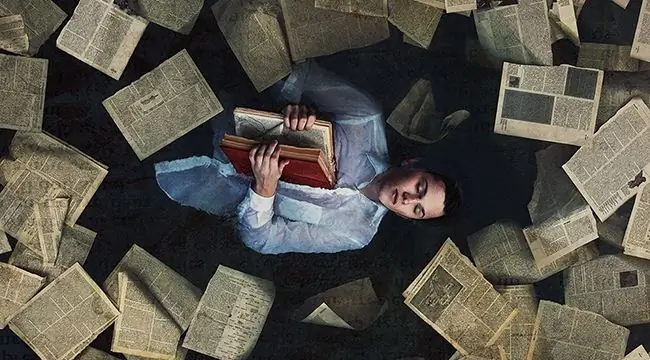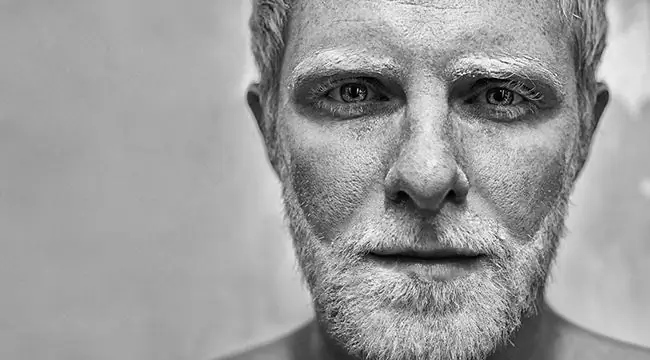- Author Adrian Jeff jeff@psychologosportal.com.
- Public 2023-12-17 05:06.
- Last modified 2025-01-24 14:09.
Teaching Profession: Hope or Despair?
This article is an attempt at reflection for oneself and reflection for others. A conversation about teaching philosophy in education. An argument about whether there is any sense in pedagogical activity, when during the lesson, often only a few students listen with interest to the teacher and want to really learn?
This article is an attempt at reflection for oneself and reflection for others. A conversation about teaching philosophy in education. An argument about whether there is any sense in pedagogical activity, when during the lesson often only a few students listen with interest to the teacher and want to really learn? If, after conducting a lesson, in which it seems that the teacher gave it all out, you can feel the desert behind your back. A desert of indifference and misunderstanding.

A big difference
In the memories of the bygone days of our education, there is a bright image of a teacher enjoying universal respect, whose word was, if not the ultimate truth, then it was certainly a weighty word, significant, authoritative. Today we live in a different society, with different values.
System-vector psychology of Yuri Burlan calls the era of modernity a skin era, characterized by the priority of material values, the pursuit of saving time and everything else, the swiftness of the pace of life. Therefore, children, new generations, are born with different mental properties than those who were born in the anal era with admiration for family values, accumulated traditions, constancy, stability in the future.
It is safe to state the fact that Russian society has changed, children have changed, but what a teacher, in fact a representative of one of the most conservative professions, should do in this situation is not clear.
In addition, the teacher is most often a person with an anal vector. That is, its internal features: rigid psyche, respect for traditional values, focus on quality rather than speed of work, inability to do ten things at once, difficulty in adapting to changes - they come into conflict with modern requirements, new trends in education. It is necessary to learn quickly (at the top, and not thoroughly and scrupulously), be able to easily adapt to changing educational standards, social demands, and even in conditions of general instability and degradation of the moral foundations of Russians.
The constant pressure of the landscape on the teacher, the depreciation of this profession, are increasingly giving rise to disappointments in the teaching field. Every year, an increasing number of teachers perceive work as a kind of punishment, torment, a source of frustration and dissatisfaction instead of joy, happiness, and a sense of fullness of life.
Where to look for the lost meanings of pedagogical activity? In the pedagogical writings of past thinkers? Satisfying the desires of society, children? In awareness of yourself and your values? Or, perhaps, give up and just go with the flow - the school teacher does not care and has no time to consider these subtle matters?

Looking for meaning
Jean-Paul Sartre once said: "Life before we live it is nothing, but it depends on us - to give it meaning." You cannot be happy without feeling the meaning of your existence and not realizing it to the maximum. And it is in our power to choose: to live as we are accustomed to, as we have to, like a ball, fly where they kick, or work on ourselves, on the awareness of our own life values and the mission that teachers bring to the world.
From the point of view of Yuri Burlan's System-Vector Psychology, any person is not born a "blank slate", he initially possesses certain innate properties that are assigned to him at the basic level. That is, the natural potential requires development and implementation. In this sense, philosophers are right when they say that man exists only to the extent that he realizes himself.
If the development of vectors (innate mental properties) occurs within the age limits (before puberty), and here the child's social environment plays a decisive role, then the realization of a person depends to a greater extent on himself: he can always change, improve his life.
Finding the meaning of life is impossible without understanding your own nature, the structure of your psyche. This allows you to correctly place accents in life, become more confident in yourself and not change yourself to please someone. Most teachers are representatives of the anal vector, and when studying the characteristics of this vector, it becomes clear why teachers behave in this way, why they resist changes, are wary of various innovations in the field of education, why, despite the low status of the profession, scanty pay, remain in the profession …

Of course, society has accumulated a whole heap of all kinds of rationalizations and explanations for inertia, the retrograde of teachers, and the propensity of some to sadism - both verbal and physical. However, only a systemic view gives an understanding of what is actually happening in the teacher's soul. The resonance of internal values with external ones leads to frustration, loss of ground underfoot. The greater the pressure of society, the more opposition, the more irritation and resentment accumulate.
The anal person needs respect, in a gradual, thoughtful implementation of reforms, so that everything is laid out on the shelves, clear goals are defined. While the Russian society cannot give this to teachers, they remain on their own, understanding their significant contribution to the education and training of new generations, realizing the specific role of the teacher as a link in the transfer of the accumulated culture from previous generations to new ones, to take care of their mental comfort, to create their own world in which would be the main meaning of education: the upbringing of man by man was achieved in reality, and not on paper.
Children are the source of inspiration
Almost all students complain that they are bored at school, they would like a teacher who would amuse them. What to do, the time of the consumer society, the time of mass culture, the time of the domination of the Internet. The traditional lesson is of little interest to children. The system-activity approach promoted by the FSES, on the contrary, works. Especially with a systematic understanding of the psychology of children.
Proceeding from the fact that it is necessary to accept children as they are is possible only in the sense that it is necessary to know and understand their innate characteristics, which cannot be changed, cannot be exchanged for others, but at the same time the task of raising and developing children has not been canceled. Yes, modern children are born with a higher potential than we are, with more power of desires, greater abilities. But they even more than we did in our time need understanding and our adult support. They don't know how to fulfill their desires. We create for them the conditions for the development and realization of innate inclinations. Or we do not create and receive "subhumans" who, as they could, filled their spiritual emptiness, as they could, and developed. Not understanding what and which child really needs, we do not implement educational tasks at the proper level and lose children. We lose the fate of a child to surrogates of happiness - drugs, alcohol, gambling addiction, etc.

The teacher can win the fight for the child if he gains authority among children as a person (they are always attracted to happy people, they want to communicate with them), as a professional in their field (for children, it is important that the teacher is a successful person who is in demand in other fields as well, that he chose the profession of a teacher by vocation, and not out of despair), and if the child's parents support the teacher's authority or at least do not devalue it, then the positive results in the formation of the child's personality will not be long in coming.
System-vector psychology of Yuri Burlan, firstly, gives the teacher himself valuable knowledge that allows him to feel confident in a changing world, to get more pleasure from life, from work; secondly, it provides effective tools for differentiating children (as well as adults), for understanding their psychology and, accordingly, the ability to see the personal result that each student can achieve in the process of getting education.






